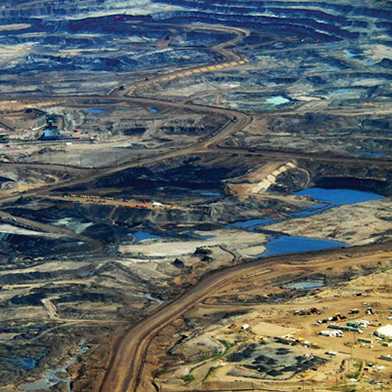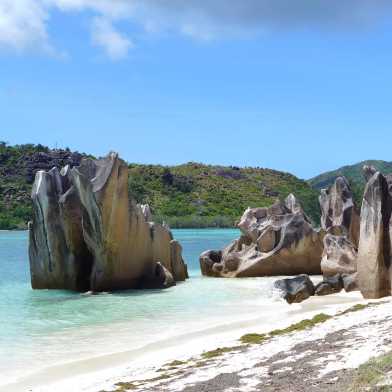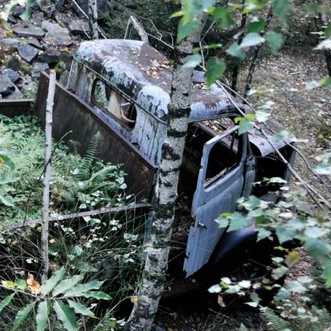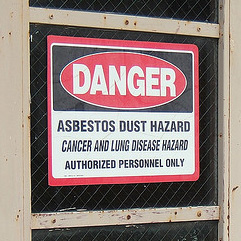ETH News
All stories by Christoph Küffer
Ecology as the guiding discipline of the future
- News
- Zukunftsblog

A nature-based economy that regenerates ecosystems and stops species extinction? Christoph Küffer believes this is possible if we strengthen ecology in research and education and make ecological expertise a basic skill for society.
An ecological turnaround can be achieved
Zukunftsblog
Nature is not a ‘nice to have’ – it’s our life support system. Dwindling biodiversity endangers the very foundation of our existence. A turnaround is possible, but only if we all want it, says Christoph Küffer.
Let’s talk about system change
Zukunftsblog

It’s 2020 and Christoph Kueffer is now into his fifth year of (almost) not flying. Whereas not flying hasn’t been difficult, talking about social change still is, he asserts.
Biodiversity: Turning crisis into opportunity
Zukunftsblog

It’s getting warmer, the gardens are in bloom – spring at last! A deceptively idyllic scene. Something is missing. Christoph Küffer calls for us to stop looking the other way and take action.
Do we still need field biologists?
Zukunftsblog

Due to digitisation, ecologists are working less and less in the field. Christoph Küffer believes that we should not rely solely on digital data, and puts the case for field research.
Disoriented
Zukunftsblog
Although we have known the causes of our environmental problems and possible solutions for decades, not much has changed. Christoph Küffer asks why.
A love for the common species
Zukunftsblog

The key instrument in the protection of species – the red list– is a register of particularly rare species. The principle is that the rarer a species, the more urgent are the measures to prevent its extinction. However, this distracts from the fact that Nature should be rich in common species.
No flying for a year
Zukunftsblog

Scientists fought energetically to set climate goals, and now they must act. And this is where flying is an ideal test opportunity: public awareness already exists, technical solutions are unlikely, and giving up flying requires innovation from the scientific community.
The delicate balancing act of research funding
Zukunftsblog

Many people see privately funded research as a threat to academic independence, but this is an incomplete view. Experts with close connections to politics and business are a logical consequence of a knowledge-based society. It is time for a fundamental debate on responsible research partnerships.
A year without flying
Zukunftsblog

It’s a conflict we all know, but it weighs particularly heavily on environmental scientists: air travel allows researchers to take part in international projects to discuss problems face-to-face, but it’s also damaging our climate and our environment. It’s a classic dilemma, and solving it will take creativity and a little sacrifice. A personal experiment.
Why Environmental Justice Matters
Zukunftsblog

Recently I attended a transdisciplinary international conference on environmental justice at Franklin University Switzerland in Lugano. It featured a potpourri of themes that might have led to nothing but confusion. But rather than leaving me dazed, these crosscurrents of thinking helped to clarify several questions that have bothered me for some time.
Zukunftsfähigkeit braucht Zeit
Zukunftsblog

Slow Food, Slow Mobility, und passend zum Frühling Slow Gardening. Entschleunigung ist im Trend. Mehr bewusste Langsamkeit fordert auch Slow Science: Die Forschung sei zu hastig, einseitig und kompetitiv geworden. Dabei braucht gerade die Nachhaltigkeit viel Zeit.
Der letzte Anarchist der ETH
Zukunftsblog

Vor 25 Jahren wurde Paul Feyerabend als Professor der ETH Zürich emeritiert. Er war ein Weltstar der Philosophie, der wichtige Grundsteine für die moderne Umweltforschung gelegt hat. Und er galt als Anarchist.
Die echte Debatte beginnt jetzt
Zukunftsblog

Ecopop thematisierte die grösste Herausforderung unserer Zeit – die Grenzen des Bevölkerungswachstums und der Ressourcen – auf der Basis eines ungeeigneten Lösungsansatzes. Nun ist die Initiative an der Urne gescheitert. Die eigentliche Problematik bleibt jedoch bestehen. Wir müssen uns dieser Herausforderung stellen – und jetzt damit beginnen.
Bedrohte Feuerwerke der Evolution
Zukunftsblog

In der Arktis und der Wüste zeigt sich die Natur von ihrer hartnäckigsten Seite, in Regenwäldern von ihrer üppigsten. Auf Inseln findet man beides: vielfältige Ökosysteme auf von Vulkanausbrüchen geprägten, kargen Felsen mitten im Meer. Aber gerade auf Inseln ist die Biodiversität besonders gefährdet.
Are we prepared for post-collapse?
Zukunftsblog

Scientific evidence shows that our society is on a perilous trajectory. Fundamental lifestyle changes are urgently needed, but we consume more, we travel more, we talk more about unavoidable collapse, while we think less about alternatives.
Hätten wir es besser wissen müssen?
Zukunftsblog

Wie lassen sich Umwelt- und Gesundheitskosten von neuen Technologien vermeiden? Mit dieser Frage beschäftigte sich ein langjähriges Forschungsprojekt der Europäischen Umweltbehörde. Der ehemalige Leiter des Projekts, David Gee, hat kürzlich an der ETH Zürich erläutert, wie uns vergangene Fehler lehren, zukünftige Umweltprobleme zu vermeiden.